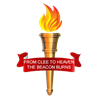Pupil's welfare
Shropshire Family Information Service
The Shropshire Family Information Service (FIS) will help you to find information on childcare, things to do, plus local and national organisations and services for children, young people and families. Click on the picture above or
email [email protected]
Is my child too ill for school?
In order for your child to do well at school, both socially and academically, they need to be in school. The NHS launched an "Attendance Matters campaign," which focused on ensuring children attend school when they are well and able to do so. For more details, click on the link below:
Health and Safety Policy
The Governing Body has instituted procedures to ensure that it adheres to the SGET Health and Safety Policy and that the conditions of the building and grounds are regularly checked.
First-Aid
The school has adequate first-aid provision including paediatric and forest school first-aiders on site. Most incidents that occur within the school are of a minor nature and can be readily dealt with. Parents will be formally informed if their child has a bump to the head. All incidents are recorded in the school’s accident book; major injuries are reported in accordance with the Health and Safety Executive guidelines.
Medical care
With your prior consent, the Local Primary Care Trust undertakes general health screening as well as dental, oral and sight checks on a regular basis. In addition they undertake National Child Measurement Programme (Year R and Year 6 pupils). Children are no longer checked for head lice as a matter of routine. However, if there is an outbreak in the school we will provide parents with an information leaflet.
Your child should be kept at home if they are unwell; please report your child’s absence as soon as possible. The school will contact parents to collect their child if they become unwell during the school day. It is essential that we hold up to date contact details for this purpose.
The school uses Medical Tracker to keep parents up to date with any first aid or medical intervention provided during school hours. The system also enables parents to keep the school up to date with health care plans including asthma and allergy advice.
Infectious Diseases
Clearly children should not attend school if they have an infectious disease. Details of periods of exclusion can be obtained from the school office.
Administration of drugs and medicines to pupils
Please bear the following points in mind. This is important for the safety of your child and others.
- Parents are welcome to come into school by prior arrangement to administer necessary drugs or medicines to their children.
- Where this is not possible the Head Teacher may arrange for prescribed drugs or medicines to be administered by a member of staff. The school must have the written authority of the parent which includes the statement that the parent accepts full responsibility.
- Any drugs or medicines brought into school must be in their original container clearly labelled with the contents, the child’s name and the dosage and then must be delivered personally by the parent to the Head Teacher or School Administrator. Asthma medication may be administered by the children themselves; however, a form must still be completed for our records. Children should keep their own inhalers at school if necessary but must not carry their own medicines. We would encourage that medicine requiring administration three times a day is given at home.
Please note that teachers and other members of staff are entitled to refuse to administer any drugs or medicines to any child.
Insurance
The school has a combined off-site and on-site insurance cover which covers pupils whilst they are at school and on a school trip. A copy of this policy is available from the school office.
Emergency Contact
Please make sure that the school has full details of daytime contacts, names and telephone numbers in case of an emergency. This is particularly important when parents are unavailable during school hours. Please let us know immediately when any details change. This can be done via Arbor (directly) or by contacting the school office.
Child Protection
The school aims to help parents understand that the school, like all others, has a duty to safeguard and promote the welfare of all pupils. The school may need to share information and work in partnership with other agencies when there are concerns about a pupil’s welfare. The designated officers for child protection at Clee Hill Community Academy are Ceri Little, Donna Richardson and Hattie Barnes. All adults working at school are required to complete a DBS check.


